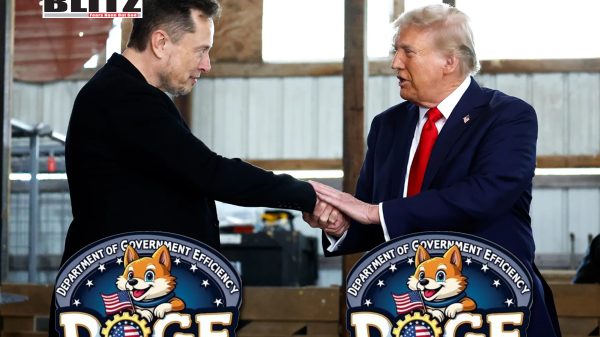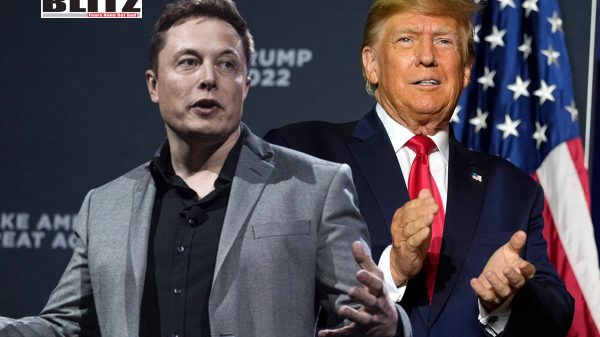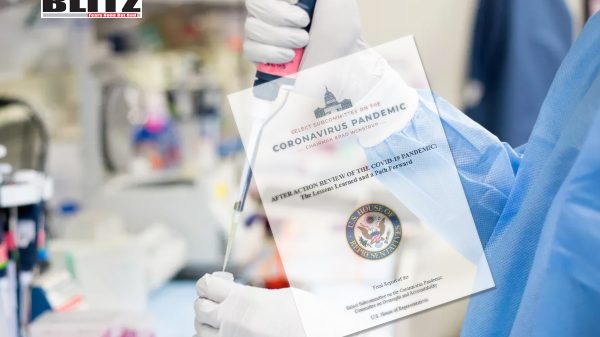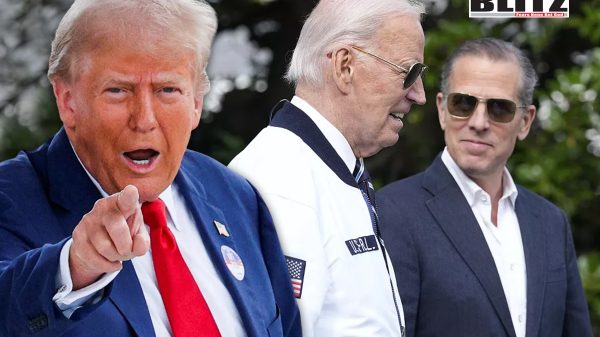Every state should create its own DOGE for efficiency
- Update Time : Saturday, November 23, 2024

For decades, the ever-growing national debt-now a staggering $36 trillion-has loomed over America like a dark cloud. While it has long been a source of mild concern for policy wonks and budget hawks, the average voter has often viewed it as a distant, abstract problem. However, historic inflation and skyrocketing living costs have changed that narrative, dragging Americans to the edge of their own financial precipice.
The results of the recent election suggest that voters have had enough. President-elect Donald Trump capitalized on this frustration, presenting himself as the lifeline to pull America back from financial ruin. Central to this vision is his plan to establish the Department of Government Efficiency (DOGE), an ambitious initiative aimed at dismantling bloated bureaucracies and curbing wasteful government spending.
While the federal DOGE promises to tackle inefficiencies in Washington, it would be naïve to ignore the role of state and local governments in perpetuating America’s fiscal woes. If real reform is to occur, every state must embrace its own version of DOGE to address inefficiency, waste, and unsustainable spending at the local level.
Although Washington bears significant responsibility for the nation’s ballooning debt, it doesn’t act alone. Federal spending is often facilitated and exacerbated by state and local governments, which eagerly accept federal grants and funds without questioning their long-term consequences. Programs like Medicaid and food stamps illustrate how state-level inefficiencies compound federal overspending.
Medicaid, a welfare program costing nearly $1 trillion annually, consistently exceeds budget projections. States exploit the program by prioritizing federal revenue over accountability or efficiency. Alarmingly, one in every five dollars spent on Medicaid is improper, and without reform, an estimated $1 trillion will be wasted over the next decade.
The Supplemental Nutrition Assistance Program (SNAP), commonly known as food stamps, disburses over $100 billion annually in benefits. While federally funded, it is administered by state agencies. In 2022 alone, $11 billion in SNAP funds were wasted due to fraud and inefficiency. State-level mismanagement plays a significant role in this hemorrhaging of taxpayer dollars.
These examples underscore the urgent need for states to take ownership of their fiscal responsibilities. By creating state-level DOGEs, governors and legislatures can partner with the federal government to tackle waste, rein in bureaucracies, and restore trust in government spending.
Much like the federal DOGE, a state-level Department of Government Efficiency would focus on eliminating waste, reviewing spending, and holding bureaucracies accountable. Here’s how such a program could work:
Audit Improper Payments: State DOGEs would begin with a comprehensive review of improper payments across state-administered programs. By identifying the root causes of waste and fraud, they could implement targeted reforms. These findings would also inform the federal DOGE, allowing for broader, system-wide changes.
Overhaul the Regulatory Landscape: States often suffer from over-regulation, which stifles economic growth and wastes taxpayer resources. A state DOGE would require that more regulations be eliminated than created, institute a zero-based regulatory approach, and mandate legislative approval for any costly regulations. This ensures that only essential and efficient regulations remain on the books.
Scrutinize Federal Grants: Federal grants often come with hidden costs, locking states into long-term obligations that strain their budgets. State DOGEs would meticulously review every federal grant to ensure alignment with sound financial principles. While federal DOGE aims to eliminate the most egregious grants, states must do their part to end their reliance on this “free money” that ultimately costs taxpayers dearly.
Streamline Bureaucracy: State governments are notorious for their bloated bureaucracies, with countless positions that add little value. A state DOGE would enforce stringent hiring reviews, requiring agencies to justify every new hire. Vacant positions left unfilled for extended periods would be permanently eliminated, ensuring that only essential roles remain.
Restore Legislative Oversight: Unelected bureaucrats often implement costly programs without adequate oversight. A state DOGE would mandate legislative approval for all state plans tied to federal programs. This reform would return control to elected representatives, ensuring that taxpayer dollars are spent with accountability and transparency.
One of the most significant challenges to fiscal reform at the state level is the addiction to federal grants. These grants are often viewed as a financial windfall, but they come with strings attached-strings that tie states to unsustainable programs and policies. By scrutinizing and rejecting grants that do not align with long-term fiscal health, state DOGEs can break this cycle of dependency.
For example, a state DOGE might reject a federal grant that funds a temporary program but imposes ongoing maintenance costs on the state budget. This discipline would force state governments to live within their means, rather than relying on federal handouts to paper over budget shortfalls.
President-elect Trump’s call for fiscal sanity has created a unique political moment. Conservatives in state legislatures have an opportunity to seize this momentum and lead the charge for efficiency and accountability. By establishing state-level DOGEs, they can demonstrate their commitment to taxpayers and position themselves as champions of reform.
This initiative also presents a chance to challenge the dominance of bureaucratic elites who have long prioritized their interests over those of the public. A state DOGE would shift power back to lawmakers and, by extension, to the people they represent.
The idea of a Department of Government Efficiency may have started as an internet meme, but it has evolved into a serious proposal with the potential to transform government at every level. By tackling waste, curbing overreach, and prioritizing the needs of taxpayers, DOGEs-both federal and state-can help America chart a course toward fiscal sustainability.
State policymakers must recognize the urgency of this moment. The national debt, coupled with inefficient state spending, threatens to cripple future generations. The creation of state DOGEs is not just an opportunity to align with federal reforms; it is a moral imperative to ensure that government works for the people, not against them.
In a nation burdened by debt, every state needs a DOGE. By embracing this radical efficiency revolution, states can join the fight to make America affordable again-and secure a brighter future for all.
















Leave a Reply